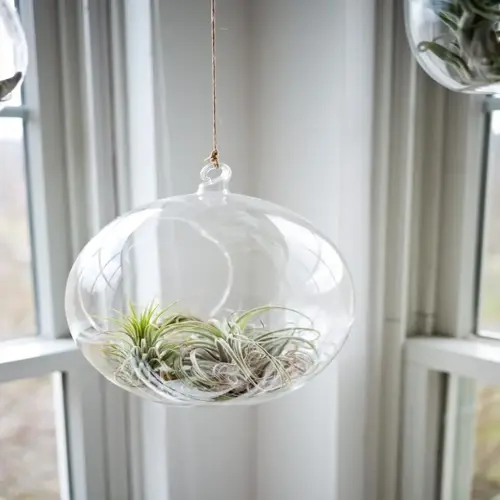How often should I water indoor ferns?

Written by
Olivia Mitchell
Reviewed by
Prof. Samuel Fitzgerald, Ph.D.To care for indoor ferns, it is essential to understand their tropical nature and their seasonal rhythms. I destroyed my first fern by watering it every week, regardless of the circumstances. The key to thriving ferns is to test the soil moisture before watering. Your best guide is to check if the top inch of the soil has dried. In general, how often you water your ferns depends greatly on how the seasons are changing, especially from summer to winter.
Soil Moisture Testing
- Perform the finger test: insert up to second knuckle
- Water when top inch feels dry but lower soil holds moisture
- Use moisture meters for deeper pot verification
- Lift pots to gauge weight difference between wet/dry states
Seasonal Adjustments
- Summer: Water every 2-3 days during active growth
- Winter: Reduce to weekly or bi-weekly during dormancy
- Spring/Fall: Transition gradually as temperatures change
- Monitor heating/cooling system impacts on drying speed
Fern Variety Differences
- Maidenhair: Keep consistently moist but not soggy
- Boston: Water when surface dries slightly
- Staghorn: Mist daily plus weekly soaking
- Rabbit's Foot: Allow partial drying between waterings
Using proper technique helps to avoid root decay. Always fully saturate your plant until water runs out of the bottom of the pot. This encourages roots to grow down deep. I typically use rainwater that I have stored at room temperature, as the chlorine in tap water can damage roots. Avoid allowing pots to sit in a saucer of water. Try to empty any excess water within half an hour to help prevent the item from becoming sogginess.
Identify signs of moisture deprivation before it damages your plants. If a fern is thirsty, it will have drooping fronds or crispy margins on its leaves. When plants are watered too frequently, you will begin to see lower leaves turn yellow and stems that start to feel mushy. If you notice any of these symptoms, check the soil moisture levels immediately and adjust your watering schedule accordingly.
The choice of pots influences how often watering will be needed. Un-glazed terra cotta drains and dries out faster than glazed ceramic. Choose the container that suits your needs, depending on whether you have moisture-tolerant ferns (such as maidenhair ferns), a plastic planter, or rabbits' foot ferns that prefer a breathable clay substrate. Whatever you choose, always ensure that it has drainage holes.
Establish a watering journal to track your watering habits and observe how your plant responds. Every day, I take note of the weather and indoor humidity. Over time, you will recognize consistent patterns that may suggest ideal watering schedules for your environment and conditions. Consistently observing your plants will also help you develop your intuition. It will help your fern thrive under your unique care!
Read the full article: 8 Expert Tips: How to Care for Ferns Indoors

